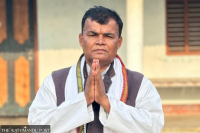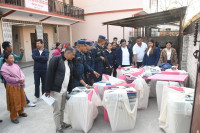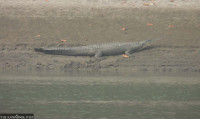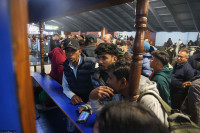National
Chepangs evicted for conservation, denied promised housing, amenities
National Human Rights Commission report reveals cases of torture and deaths among Chepang people during forced eviction and displacement.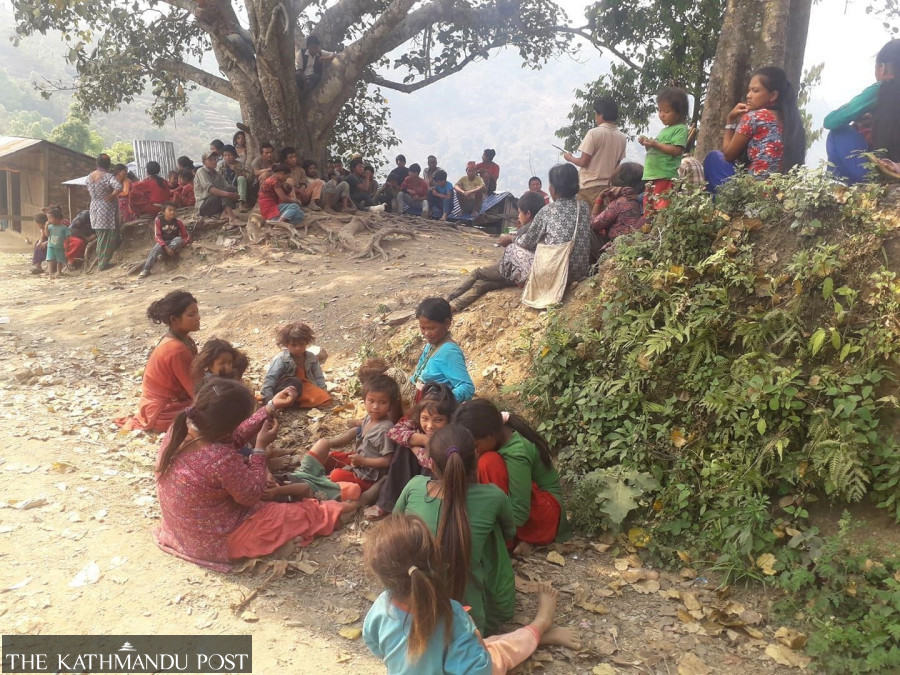
Binod Ghimire
On July 19, 2020, Chitwan National Park officials, backed by Nepal Army personnel, demolished and even burnt the houses of indigenous Chepang people in Kusumkhola of Madi Municipality in Chitwan.
While the residences of Khan Bahadur Praja and Deep Bahadur Praja were torched, houses of eight other families were knocked down using elephants. Ten families were rendered homeless by the authorities, claiming they had encroached the national park’s land.
Over the years, 160 Chepang families from Kusumkhola have been forced to leave the place they were living in since 1991. They were relocated to Pyauli, Raidanda, Kharkatta and Parvikhola within the municipality with the assurance of proper housing. But a recent study by the National Human Rights Commission shows most of them are living in miserable conditions.
Though those from Raidanda have got better houses under the government’s integrated settlement project, others are living in vulnerable conditions. “Those from Kharkatta and Parvikhola are living in risky thatched houses with wooden frames. They even lack bare minimum amenities,” reads the commission’s study report. In Parvikhola, there are just three hand pumps (shallow tube wells) for 55 families while five families share a toilet in Kharkatta.
“The displaced people, who say they left Kusumkhola with the promise of quality housing and land ownership, complain that they now have no means of livelihood,” reads the report. Most of them neither own land nor have other arrangements for their livelihood. Their eviction and their deprivation of proper residency and livelihood is a violation of several provisions of ILO Convention 169 on Indigenous and Tribal Peoples.
Chepangs have traditionally relied on forests and rivers for their sustenance. In the absence of other sources of income, they still have to rely on the old sources even as their hardships grow. They report facing harassment by national park authorities if they enter the forests to fetch firewood and food or fish in the river, as per the findings.
Several incidents of harassment of members of the Chepang community have been reported over the years. For instance, on July 16, 2020 Kumar Chepang and six of his friends, including two women, were detained by an Army patrol inside the park. They had gone to collect Ghongi, a species of snail considered a delicacy, in the Jyudi river inside the park.
They were released on the same day.
Beacause of torture, Raj Kumar fell ill after he was released and died on July 22. Following the complaints and pressure from different quarters, the police arrested an army personnel for torturing him, two months after the incident. The personnel was later convicted by the court.
Not just those from Madi Municipality. The majority of the indigenous Chepang people have very low living standards and minimal representation in the state machinery, according to the commission. While a significant number of the Chepang families do not own land, around nine percent lack citizenship certificates.
As of 2024, only five—three women and two men—have got jobs in civil service. While 65 of them were elected to local units in the previous local elections, only 12 of them are ward chairpersons. Rest are just the members.
As per the 2021’s national census, the total population of Chepang stands at 84,361. Chepang is one among 59 indigenous janajati listed by the government.
“The implementation of civil, political, economic, cultural, educational and linguistic rights of one of the most marginalized communities is not satisfactory. All three tiers of governments should play their part for the uplift of the community,” the report concludes.




 23.27°C Kathmandu
23.27°C Kathmandu
